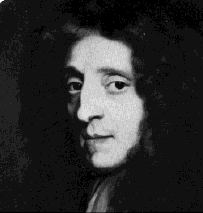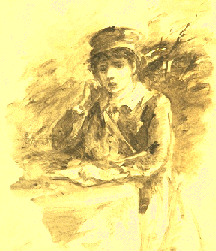The "Educationalists" believed that children were born as "blank slates", beginning their lives morally neutral. From this point of view, infants were neither inherently good or inherently evil. A child's nature and personality would develop over childhood, a period of time during which the educationalists believed a child was particularly impressionable. Adults surrounding a child could potentially have a very lasting effect on his personality.
 Perhaps the man most influential to educationalist theory
was John Locke. As Margaret J. M. Ezell puts it,
his 1693 book Some
Thoughts concerning Education
presents the basic argument that "a child's mind must be educated
before he is instructed, that the true purpose of education is the
cultivation of the intellect rather than an accumulation of facts."
According to Locke, the ideal education would instill a strong moral
sense. In particular, a child should be taught virtue, wisdom,
breeding, and learning. 34
Perhaps the man most influential to educationalist theory
was John Locke. As Margaret J. M. Ezell puts it,
his 1693 book Some
Thoughts concerning Education
presents the basic argument that "a child's mind must be educated
before he is instructed, that the true purpose of education is the
cultivation of the intellect rather than an accumulation of facts."
According to Locke, the ideal education would instill a strong moral
sense. In particular, a child should be taught virtue, wisdom,
breeding, and learning. 34
This was possible because, among other reasons, a child's mind was a "tabula rasa", or blank slate (Locke originally used the term in his earlier work An Essay concerning Human Understanding, considered by modern philosophers to be his most influential work). Since the child's mind was so malleable, a parent could mold him with careful diligence. After all, one could write good moral sense upon a blank slate as well as numerous faults.30
Some Thoughts concerning Education was an extremely popular book. While earlier thinkers had espoused similar ideas, educationalist theory was largely ignored until Locke's publication. By 1750 over a dozen editions had been published, and the book was translated into French, German, Italian, Dutch, and Swedish. The huge popularity of Locke's book helped make popular the discussion of childhood as a separate stage of development from adulthood. Not only were parents influenced by his work, but so were other thinkers and writers of the time.
 Even Locke's supporters, however, did not always
agree with him. His opinion of the use of imaginative literature and
the fine arts, for instance, was not particularly positive. He
advocated two forms of literature for instruction, fables and
religious works. In particular, he promoted the use of
Aesop'
s Fables. As to
other literature (as well as other arts), however, Locke believed
that they served no didactic
purpose.31 In addition, he thought that
passionate music would intensify emotions in the child, and that
would damage the cultivation of reason. On the other hand, later
educationalists saw the cultivation of the imagination a worthwhile
pursuit, and encouraged the use of literature such as poetry and
mythology.
Even Locke's supporters, however, did not always
agree with him. His opinion of the use of imaginative literature and
the fine arts, for instance, was not particularly positive. He
advocated two forms of literature for instruction, fables and
religious works. In particular, he promoted the use of
Aesop'
s Fables. As to
other literature (as well as other arts), however, Locke believed
that they served no didactic
purpose.31 In addition, he thought that
passionate music would intensify emotions in the child, and that
would damage the cultivation of reason. On the other hand, later
educationalists saw the cultivation of the imagination a worthwhile
pursuit, and encouraged the use of literature such as poetry and
mythology.
